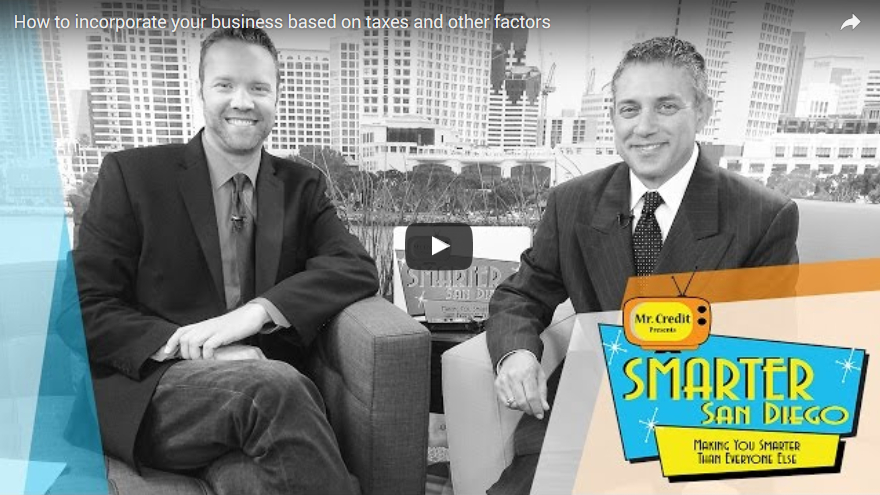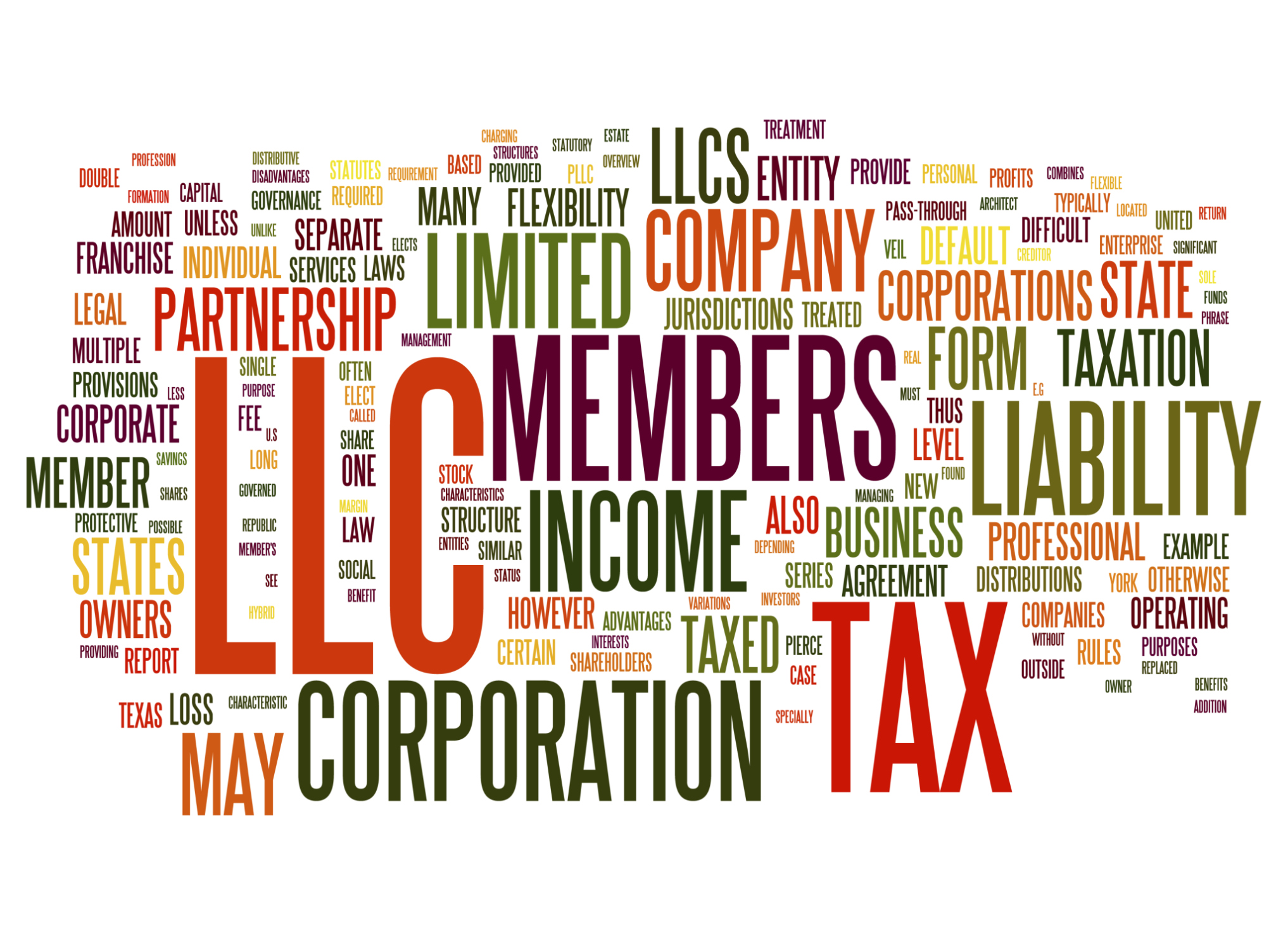Jeffrey B. Kahn, Esq. and Windus A. Fernandez Brinkkord Discusses The Financial Markets, Deducting Hobby Losses and Your Taxes On ESPN Radio – July 8, 2016 Show
Jeffrey B. Kahn, Esq. and Windus A. Fernandez Brinkkord Discusses The Financial Markets, Deducting Hobby Losses and Your Taxes On ESPN Radio – July 8, 2016 Show
Topics Covered:
1. Special Guest: David “Stan” Stankaitis, CCIM; President at Trillium Capital Partners, Commercial Mortgage Broker
2. Said the “Stock Market to the Bond Market: La-La-La I Can’t Hear You”
3. Beware Your Hobby Business Could Land You In Tax Court
4. Questions from our listeners:
a. In order to invest more conservatively in the current volatile market and ride out the market slump until the next Bull Run, what type of investments should I be shopping for?
b. If I’m not set to retire for the next 40 years, should I really be concerned with how I’m investing right now if I’ll make it up further down the line?
c. Would investing on a Cost-Basis average eliminate some volatility if I choose to keep investing steadily through a recession?
***************************************
Windus states: Good afternoon! Yes sometimes we just have to take the money and run! Welcome to Inside Advantage – Your Financial And Tax Radio Show.
This is Licensed Financial Planner, Windus A. Fernandez Brinkkord, Senior Vice President Of Investments at Trilogy Financial Services.
Windus states: My co-host, Board Certified Tax Attorney, Jeffrey B. Kahn, the principal attorney of the Law Offices Of Jeffrey B. Kahn, P.C. and head of the KahnTaxLaw team, is off today but we still have things covered.
Windus states:
You are listening to our weekly radio show where we talk everything about finances and taxes from the ESPN 1700 AM Studio in San Diego, California.
Windus states:
When it comes to knowing tax laws and paying taxes, let’s face it — everyone in the U.S. is either in tax trouble, on their way to tax trouble, or trying to avoid tax trouble!
Windus states:
And whether you are on the rebound or flying high, we have the information you need to make sound financial decisions and map out your strategy for success.
Windus states:
Our show is broadcasted each Friday at 2:00PM Pacific Time and replays are available on demand by logging into the KahnTaxLaw website at www.kahntaxlaw.com.
Windus states:
For today’s show we have coming up:
Segment 2 material: Said the “Stock Market to the Bond Market: La-La-La I Can’t Hear You”
Windus states:
Also coming up is:
Segment 3 material: Beware Your Hobby Business Could Land You In Tax Court
And of course towards the end of our show, we will be answering some of your questions.
Windus states: It’s time now to introduce you to our special guest this week:
David “Stan” Stankaitis, CCIM; President at Trillium Capital Partners, Commercial Mortgage Broker
1. Tell us a little bit about what you do Stan.
2. What peaked your interest about your line of work, in the first place?
3. What did you do prior to entering the field of Commercial Mortgages?
4. How did working as a Derivatives Trader and Options Market Maker prepare you for your current position?
5. What made you decide to found your own lending company in 2006, and then later form Trillium Capital Partners?
6. How large is your company now?
7. With all of the different types of loan funding of commercial property, do you have a primary focus?
8. Why are you focused on these types of properties?
9. Besides the magnitude, can you tell our listeners what the major differences between private residential and commercial real estate mortgages?
10. What types of loan programs do service?
Windus states: Well it’s time for a break but stay tuned because we are going to tell you what the bond market is telling us.
You are listening to Board Certified Tax Attorney, Jeffrey B. Kahn, and Licensed Financial Planner, Windus A. Fernandez Brinkkord on Inside Advantage on ESPN.
BREAK
Windus states: Welcome back. This is Inside Advantage – Your Financial And Tax Radio Show on ESPN and you are listening to Board Certified Tax Attorney, Jeffrey B. Kahn, and Licensed Financial Planner, Windus A. Fernandez Brinkkord.
And be aware of the special offer that I have for you: Windus states Windus PLUG: Trilogy Financial Services will provide you with a retirement cash flow analysis which is a $600.00 value for free as long as you mention the Inside Advantage Radio Show when you call to make an appointment. Call my office to make an appointment to meet with me, Windus A. Fernandez Brinkkord. The number to call is 858.314.5169. That is 858.314.5169. Or visit www.guideyourstory.com.
Stock Market to Bond Market: ‘La-La-La I Can’t Hear You’
http://on.wsj.com/29sak2d
1. Lehman Brothers fell over in September 2008, equities slumped, then rallied back to their previous levels within a week
a. Brexit isn’t Lehman, but the stock market is behaving similarly
b. (DISCUSS: Similarities and historically what happened at the beginning of the great recession)
2. Since the Brexit vote, Treasury yields have tumbled, and they kept falling even as shares recovered
a. Last Friday, 10-year and 30-year yields set new lows, as did British and Japanese benchmarks
b. Bondholders think central banks will worry about the economic impact of Brexit, keeping rates lower for longer
c. (DISCUSS: Difference between now and when Lehman’s went down, bond yields rebounded with shares)
3. A divergence of bonds and equities isn’t healthy
a. (DISCUSS: Is recent activity showing that stocks are no longer about growth, but about a desperate search for safe alternatives to low-yielding bonds?)
4. We can hope
a. If Fed is scared by Brexit into keeping rates low even as the economy recovers, shareholders win
b. Short run: Brexit keeps central banks at bay until word gets around that the US economy isn’t much affected by UK troubles
c. (DISCUSS: Agree or disagree—we are in a post-Brexit safe zone and the decision for the UK to leave the EU will no longer affect us.)
5. The three big dangers for investors post-Brexit
a. Italy’s wobbly banking system
i. (DISCUSS: Explain situation with Italy pleading with Germany for bail out & possible political woes)
b. With interest rates still negative in Europe and Japan, investors may fret that central banks are running out of ammunition
i. (DISCUSS: Where interest rates are headed and whether or not you believe the Feds would considering dropping rates again so soon)
c. Governments may loosen their purse strings at the advice of the central banks to try and stimulate growth
i. (DISCUSS: Pros and Cons of increasing the US deficit versus a tighter budget. Should the world economy follow suit?)
6. Problem with investors playing it safe with equities that people will always need even in bad times(utilities, consumer staples, healthcare and telecommunications), is that they would all be hit it bond yields rise again
a. (DISCUSS: Higher bond yields caused by faster economic growth are offset by higher profits, meaning profits for the companies investors have shunned. How do you properly balance to be stable for either out-come, Bear Market or Bull Run)?
Windus states: Windus PLUG: Trilogy Financial Services will provide you with a retirement cash flow analysis which is a $600.00 value for free as long as you mention the Inside Advantage Radio Show when you call to make an appointment. Call my office to make an appointment to meet with me, Windus A. Fernandez Brinkkord. The number to call is 858.314.5169. That is 858.314.5169. Or visit www.guideyourstory.com.
Windus states: Stay tuned because if you run a side business or are looking to deduct losses from a hobby beware of the potential pitfalls that could land you in Tax Court.
You are listening to Board Certified Tax Attorney, Jeffrey B. Kahn, and Licensed Financial Planner, Windus A. Fernandez Brinkkord on Inside Advantage on ESPN.
BREAK
Windus states: Welcome back. This is Inside Advantage – Your Financial And Tax Radio Show on ESPN and you are listening to Board Certified Tax Attorney, Jeffrey B. Kahn, and Licensed Financial Planner, Windus A. Fernandez Brinkkord.
Jeff is off for today but we still have his associate attorney, Amy Spivey calling in from Walnut Creek.
Chit chat with Amy
Windus states: And before we start our next segment, Amy would you please tell our listeners of your offer?
Amy states PLUG: The Law Offices Of Jeffrey B. Kahn, P.C. will provide you with a Tax Resolution Plan which is a $500.00 value for free as long as you mention the Inside Advantage Radio Show when you call to make an appointment. Call our office to make an appointment to meet with Jeffrey Kahn, right here in San Diego or at one of our other offices close to you. The number to call is 866.494.6829. That is 866.494.6829.
Beware Your Hobby Business Could Land You In Tax Court
Windus states: Many people successfully develop a hobby into a going concern and actually receive income from it. That income must always be reported and taxes paid on that money regardless of your situation.
Amy states: Now if you leave that hobby as a hobby, under the tax law, you are not allowed to deduct any of the losses incurred by activity in that hobby. That is the reason most people turn their hobbies into a “trade or business” once they start making money.
Windus asks: Do taxpayers and the IRS have differing views as to what constitutes a “trade or business”?
Amy replies: Yes. A taxpayer will argue that the activity is a trade or business and therefore the loss is deductible in full. The IRS will argue that the activity is a hobby so expenses from the activity are generally limited to the income derived resulting in no deductible loss.
Amy continues: Let’s say you have a backyard greenhouse where you grow orchids and travel all over the world to collect new plants to add to your inventory and propagate. While you may think of this as your legitimate side business, the IRS is likely to disagree. If the IRS sees a history of losses from the activity, they may well challenge whether it is truly a “hobby” rather than a trade or business. If successful, such a challenge would preclude you from deducting a net loss from the activity, effectively rendering your orchid-growing-related tax-benefits useless.
Windus asks: When Are Hobby Losses Deductible?
Amy replies: By showing that your pursuit of your “hobby” is an activity engaged in for profit, you may be able to deduct those years where you incurred losses if you meet certain presumptions.
Amy continues: For activities not involving the breeding, training, showing, or racing of horses, the presumption is that your business is an activity engaged in for profit where you show annual net income from an activity for 3 or more of the taxable years in the period of 5 consecutive taxable years which ends with the most recent taxable year. So if for the first three years your activity has incurred losses, you must show net income in years four and five (even if only $1.00 in each year) in order to still be able to deduct the first three years of losses.
Amy continues: For activities involving the breeding, training, showing, or racing of horses, the presumption will work in the same fashion except you must show annual net income from an activity for 2 or more of the taxable years in the period of 7 consecutive taxable years which ends with the most recent taxable year.
Windus asks: Are there any factors out there that taxpayers should know to determine whether an activity is entered into for profit or a hobby?
Amy replies: The regulations under Section 183 (the so-called “hobby loss rules”), provide nine factors, which if answered in the affirmative, are indicative of a business.
Amy to recite each factor.
1. The manner in which the taxpayer carries on the activity. Do they complete accurate books? Were records used to improve performance?
2. The expertise of the taxpayer or his advisers. Did the taxpayer study the activities business practices? Did they consult with experts?
3. The time and effort expended by the taxpayer in carrying on the activity. Do they devote much of their personal time and effort?
4. The expectation that the assets used in the activity may appreciate in value. Is the plan to generate profits through asset appreciation?
5. The success of the taxpayer in carrying on similar or dissimilar activities. Have they converting them from unprofitable to profitable?
6. The taxpayer’s history of income or losses with respect to the activity. Has the taxpayer become profitable in a reasonable amount of time?
7. The amount of occasional profits. Even a single year of profits can be a strong indication that an activity is not a hobby.
8. The financial status of the taxpayer. Does the taxpayer have other income sources that are being offset by the losses of the activity?
9. Does the activity lack elements of personal pleasure or recreation? If the activity has large personal elements it is indicative of a hobby.
Windus asks: Is there any particular factor that stands out over the others?
Amy replies: No one factor is determinative but the more you have in your favor, the better off you are. And because factors 4 through 9 are largely out of your control, you’d better make sure you’ve got the first three buttoned up by running the activity in a businesslike manner. Your business records must be up-to-date and accurate, and your business plan must lay out a course for creating profit from your activity in the future. That written business plan can be a real asset if you end up in Tax Court versus the IRS.
Windus asks: Are there certain activities that attract IRS attention more than others, and by their very nature expose the taxpayer to risk of a hobby loss challenge?
Amy replies: There seem to be two “hobbies” that trigger audits most frequently and those are horses or yachts. Both are money pits, and so if people can figure out a way to make a business out of them, that will provide either tax deductions and/or income to cover the high expenses of each. The IRS knows this, and is very strict when applying the rules to these activities. When structuring these, pay very close attention to business start-up details.
Windus states: Despite the presumptions you discussed, the IRS does not always see your hobby as a viable business, and that is where tax difficulties arise. I suspect that there are a lot of Tax Court cases involving whether an activity was a hobby or business.
As time permits – Amy can discuss any of these cases leaving time for her to recite Jeff’s plug.
1. Fishing: In Busbee v. Commissioner, T.C. Memo 2000-182, this taxpayer decided to hold fishing tournaments. These tournaments required him to promote the activity through flyers, speaking engagements, and other marketing efforts. He had to recruit participants and sponsors. He intended his hobby of fishing tournaments to supplement his retirement income as he developed it into a business. Through the process, he became an expert in bass fishing. The Tax Court considered all of this, and allowed his business.
In Peacock v. Commissioner, T.C. Memo 2002-122, this taxpayer began tournament fishing in his retirement. Sailing everywhere on his personal yacht, he and his wife fished specifically for the pleasure of participating in the tournament, especially when these tournaments were in exotic locales. In this case, the Tax Court decided this was not a business but a hobby for the activity was not “motivated primarily by the pursuit of profit”. What probably hurt their case, even subtly, was the fact that they had just sold a business and were now millionaires.
2. Golfing: In William James Courville v. Commissioner, T.C. Memo 1996-134, an optical engineer, after 30 years of employment, was laid off. He decided to become a professional golfer, but took only 4 golf lessons while a “professional”. He did not qualify for the senior tour, and ended up with no income from this activity. However, he did submit a Schedule C, listing expenses totaling over $16,000. The Tax Court declared that he “failed to establish that his golfing activity was carried on with the actual and honest objective of making a profit”.
3. Track and field coaching: In Parks v. Commissioner, T.C. Memo 2012-105, the taxpayer began his professional career as a writer of freelance articles on the sport of track and field. Over a number of years, he owned a track and field magazine, coached at a number of different locations, studied with one of the foremost experts in the industry, then basically tried to establish himself and his trainees as credible within the field. By 2006, this man had a winning contestant who qualified for the Olympic trials, and by 2009, that contestant signed the taxpayer coach to a lucrative contract as his exclusive coach, and things only got better for the taxpayer. However, in a tax period of 9 years, the coach showed only a $43 profit, so the IRS claimed hobby not business. The Tax Court considered the case in great detail and decided primarily (although not all points) for the taxpayer, saying his income was growing and he had great potential for success. They did not see track and field as a typical hobby, and that did work to the taxpayer’s benefit.
4. Writing: There is an infamous case which always gives people a chuckle, and that is the man who decided to write about prostitution. Vitale v. Commissioner, T.C. Memo 1999-131. Ralph Louis Vitale, Jr., in 1999, claimed on his tax return that he was in the business of writing about prostitution. When this taxpayer began his “research” four years before his retirement, he was still a full-time employee. Over the course of time, he visited a large number of brothels doing his “research” and always paying for services in cash (no records kept). He did keep a journal detailing each of his visits and expenses, and eventually developed a manuscript from his notes. Vitale submitted his manuscript to a vanity publisher, paying $4,375 to publish it. All told, after he received $2,600 in royalties, the publisher went bankrupt. Subsequently, the book rights were returned to him, and he again began marketing his book throughout the industry. The IRS said this was just a hobby and disallowed Vitale’s deductions. So Vitale went to Tax Court. At first, the Tax Court felt that the taxpayer had a profit motive and overruled the IRS, even though the court also made comments about the “recreational” qualities of the contents of his book. The court did like his record-keeping and marketing and felt it showed his professionalism. But then the Tax Court disallowed all of his deductions, for the taxpayer could prove none of them (remember the cash payments?). Nevertheless, the court did not penalize this taxpayer in any way, saying that he had made a reasonable attempt to comply with the law.
Amy states: The U.S. Tax Court weighs “profit motive” most heavily in each of their decisions. Profit is a key decider when considering whether an activity is hobby or business. Is your hobby truly for profit or only for pleasure? That is foremost and basic premise that the Tax Court considers. Which is why ….
Amy states: PLUG: The Law Offices Of Jeffrey B. Kahn, P.C. will provide you with a Tax Resolution Plan which is a $500.00 value for free as long as you mention the Inside Advantage Radio Show when you call to make an appointment. Call my office to make an appointment to meet with me, Jeffrey Kahn, right here in downtown San Diego or at one of my other offices close to you. The number to call is 866.494.6829. That is 866.494.6829.
Windus states: Thanks Amy for calling into the show. Amy says Thanks for having me.
Windus states: Stay tuned as we will be taking some of your questions. You are listening to Board Certified Tax Attorney, Jeffrey B. Kahn, and Licensed Financial Planner, Windus A. Fernandez Brinkkord on Inside Advantage on ESPN.
BREAK
Windus states: Welcome back. This is Inside Advantage – Your Financial And Tax Radio Show on ESPN and you are listening to Board Certified Tax Attorney, Jeffrey B. Kahn, and Licensed Financial Planner, Windus A. Fernandez Brinkkord.
Windus states: And Jeff and I always pleased to make our offers to our listeners where… PLUG: The Law Offices Of Jeffrey B. Kahn, P.C. will provide you with a Tax Resolution Plan which is a $500.00 value for free as long as you mention the Inside Advantage Radio Show when you call to make an appointment. Call Jeff’s office to make an appointment to meet with him right here in San Diego or at one of his other offices close to you. The number to call is 866.494.6829. That is 866.494.6829.
Windus states: Windus PLUG: Trilogy Financial Services will provide you with a retirement cash flow analysis which is a $600.00 value for free as long as you mention the Inside Advantage Radio Show when you call to make an appointment. Call my office to make an appointment to meet with me, Windus A. Fernandez Brinkkord. The number to call is 858.314.5169. That is 858.314.5169. Or visit www.guideyourstory.com.
You should also know that the securities and advisory services are offered through National Planning Corporation (NPC) Member FINRA, SIPC, and a Registered Investment Advisor. Trilogy Financial Services and NPC are separate and unrelated Entities.
Windus states: If you would like to post a question for us to answer, you can go to Jeff’s website at www.kahntaxlaw.com and click on “Radio Show”. You can then enter your question and maybe it will be selected for our show.
Windus states: And in the studio with me today is our special guest, David “Stan” Stankaitis, CCIM; President at Trillium Capital Partners, Commercial Mortgage Broker. And Stan as our special guest, I will let you read what questions our listeners have for us to answer?
Carlos from San Diego asks: In order to invest more conservatively in the current volatile market and ride out the market slump until the next Bull Run, what type of investments should I be shopping for?
Windus answers.
Susan from Carlsbad asks: If I’m not set to retire for the next 40 years, should I really be concerned with how I’m investing right now if I’ll make it up further down the line?
Windus answers.
Sandra from Newport Beach asks: Would investing on a Cost-Basis average eliminate some volatility if I choose to keep investing steadily through a recession?
Windus answers.
Windus states: Well we are reaching the end of our show.
Remember you can send us your questions by visiting the kahntaxlaw website at www.kahntaxlaw.com.
Have a great day everyone!






 Follow
Follow Follow
Follow